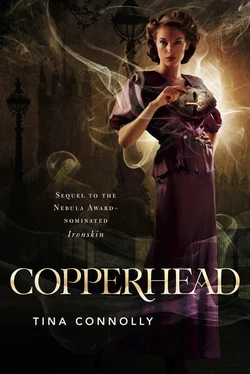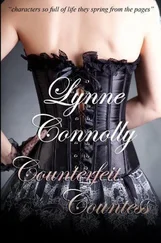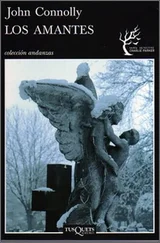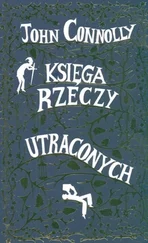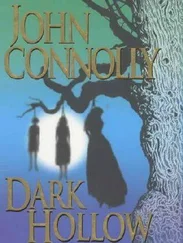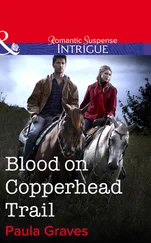Vanished. To the city.
To a place where she had gone for sanctuary.
Abruptly Helen stood. There was one person who might be able to direct her to her sister’s whereabouts.
* * *
The night was cold and Helen was tired of walking by the time she neared the foundry on the river. The factories were more here—the smell and smoke greater. But the bits of fey were fewer. Helen saw hardly any as she picked her way down the river-splashed streets, across cobblestoned patches of street as well as rutted packed dirt, hard and frosted with ice crystals. Slush patterned her stockinged legs, the tops of her feet, slid into her bronze heels. Even in the frozen air there was a thin smell of river and sewage and fish.
A form lurched up to her in the dark. Helen gasped and jumped away as its arms swung toward her like a dead thing. In a moment of stark memory she saw a battlefield long ago, saw a familiar farmer fall to the fey, then rise up just like this as a fey took over his dead body. Lurching with stiff arms, trying to make the limbs obey the new mind.
“What’s going, pretty?” said the man drunkenly. “How much then?”
Helen’s heart kept up its mad pounding rush. She did not have a jar of bugs, she did not have a rescuer, but she was not going to be helpless. In the moonlight she turned square to the man and said with all her will, “Go home. Go home.”
He wavered. “Don’t wanna go home. Wanna drink and a pretty.”
“Drink yourself into oblivion for all I care,” Helen told him. “But not with me.” She glared at him until he finally backed down, staggered away.
She breathed carefully, making her heart slow. Her silk dress and stockings were too thin for the cold air. She wrapped her wool coat more tightly, tucked her gloved fingers under her arms. She should be wearing her furs, as ridiculous as that would be in this part of town. Where was that damn foundry?
The square, redbrick building opposite looked vaguely familiar. It had certainly not been papered with that line of identical posters five years ago, though. Yellow posters with a red seven-headed snake, and the words ONE PEOPLE! ONE RACE! repeated twenty times on the wall in case you missed the first one.
She touched the curling edges of the very last poster and closed her eyes, trying to visualize the twists and turns she had taken. She had visited Jane once at the foundry, five years ago now. If she thought about it the right way she could almost see it; she was so close.… Eyes half-shut, she moved quickly and with purpose, down another block, around some stairs, and suddenly there it was, the iron fence sharp and forbidding. Her eyes opened against the black night and she stared at it, uncertain now how she had gotten there.
Or was it simply that she didn’t know what to do now that she had arrived?
There was an iron hydra coiled on the gate. That was a new feature.
Helen shuddered as she touched it, the iron cold and firm through her lilac gloves. What was she getting herself into here? She had thought of this as a safe place, because Jane had always spoken of it as her haven. But zealotry could override logic.
She waited, shivering. Then behind the gate, as if he had always been standing in the shadows, she saw him. The man who ran the foundry; what was his name? Niklas. Tall and broad, wrapped in warm leathers against the night.
“What’s a fey groupie want here?” he said. “Couldn’t wait till morning to get a new mask?”
Of course. The iron masks came from here. She had forgotten. Oh, wouldn’t Jane have had a biting remark for her about that? The careless rich, who don’t even know where their salvation comes from. “No,” Helen said. “I mean, yes, I need one badly. I can pay.…”
“Of course you can. And extra for interrupting my dinner. Wait.” He melted away into the night, leaving Helen straining her eyes to see into the tangle of iron and machinery behind the bars. The yard was more crowded than she had remembered it, more filled with hulking boxes with gears and spokes and arms, machines that seemed half-alive under the blue moonlight. She remembered it as a yard of dirt and seagulls and rusting scrap metal, but now it was thick and dense. An enormous metal tower built in front of the old shop building blocked out part of the sky. It was chained with long loops of thick iron links. Everything smelled of soot and hot metal.
“Here it is,” he said, for he was back again. Niklas held the mask up for her inspection. A plain solid iron mask with mesh wires over the airholes. Identical to the one she had had, to the one all the women had. As if they were anonymous, all these wives, a mass of interchangeable women. A funereal army. “Now pay up.” He named a price and Helen fumbled through her coat pockets as if she would have money inside, but she didn’t, she never did, because you didn’t do that, you simply received credit at all the shops. The change the chauffeur had given her was gone for the trolley; there was nothing that would approach the cost of a full mask.
“Bother,” she said. Lying, said, “I’m sure I have something here,” because you did that sort of thing to stall for time, and she didn’t want him to disappear with her mask and leave her there in the cold on the street at the gate of a foundry she wasn’t sure how she found or if she could find again. She pulled up Jane’s carpetbag and rifled through it. Nothing … nothing …
“Why do you have that?” Niklas said in a low voice.
“Oh!” said Helen. “You recognize it? I’m trying to find her. I’m her sister. And she—I’m trying to find her flat, but I don’t know the address. That’s actually why I came here. To see if you knew.” She smiled up at him, trying to be her winsomest self, but she sensed it was going to have little effect on this big barrel of a man.
“Why should I give her address to you if she doesn’t want to be found?” said Niklas.
Helen stopped short. “That’s not the question I was hoping you’d ask,” she admitted.
“Which is?”
“How can you prove you’re her sister? Because that I’ve thought over and I came up with three different ways on the trolley here. One. We’re exactly the same size. Two—”
He grunted, interrupting her. “How’s the trolley running these days?”
“Slow,” she said. “It stopped twice tonight, and everyone was complaining that they’re always late to work.” It seemed as though she went up in his estimation for riding the trolley. Perhaps Niklas had an affinity for all that machinery; perhaps he liked its populist nature.
Perhaps he understood that it meant she was serious about finding Jane.
Silence, during which Helen felt the cold sinking further, creeping into her marrow. “There are an incredible number of boors on the trolley,” she added, knowing as she said it that his estimation of her would go back down. But she hated silence; it made her mouth say things. She stamped her feet in place, wishing he’d invite her inside if he was going to stand here and interrogate her. She opened her mouth to say so when the giant spoke again.
“Again,” said Niklas. “Why should I help you find her if she doesn’t want to be found?”
“Because she’s in trouble,” Helen said gently. “She was doing a facelift. It was going fine and then I went downstairs and Mr. Grimsby—of Copperhead, you know—turned on this machine and then everything went to pieces. The air went blue and roaring and the lights went out. And when I went upstairs Jane was gone. She must have run.…” She shook her head helplessly. “I just don’t know. And now—”
“And now?…” There was a dangerous rumble in his voice. “There’s worse?”
“Jane said Millicent said the fey are rising up,” she said in a hushed voice, watching his fingers tighten on the mask. “Led by … well, no, they didn’t know. Some follower of the Fey Queen, they thought.”
Читать дальше
